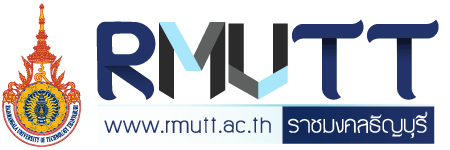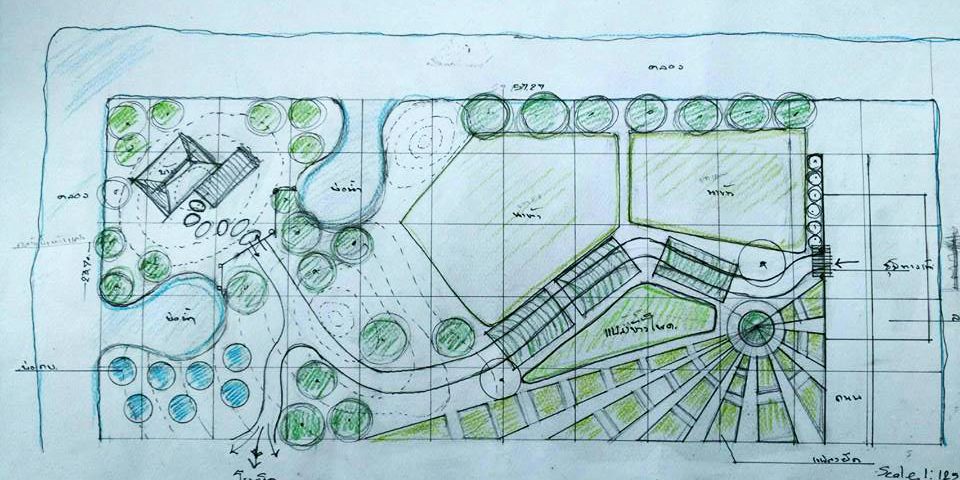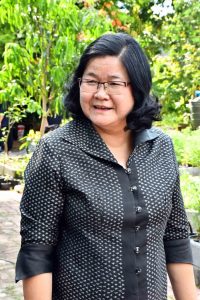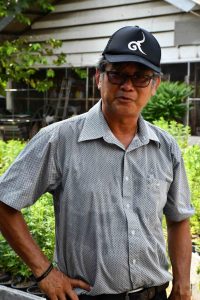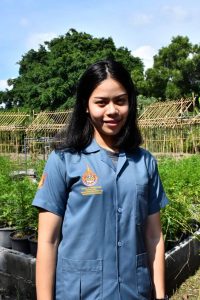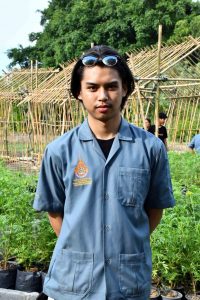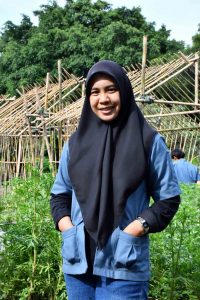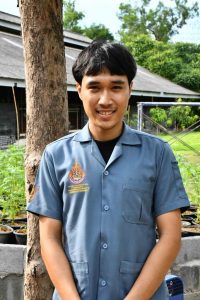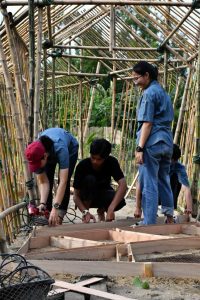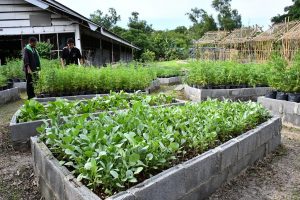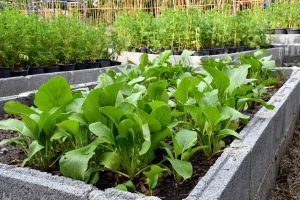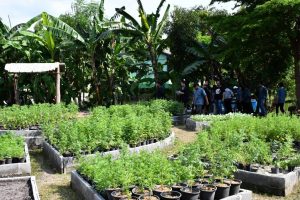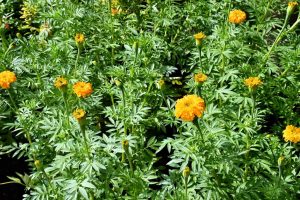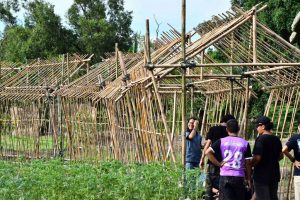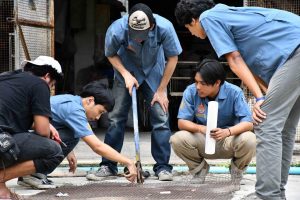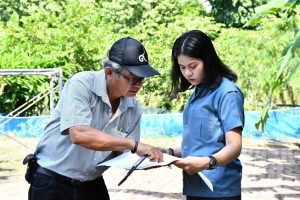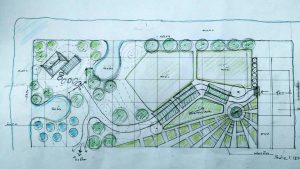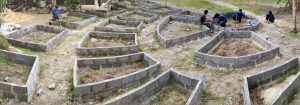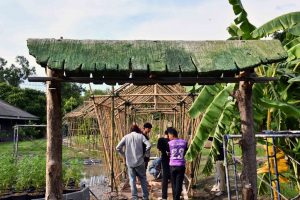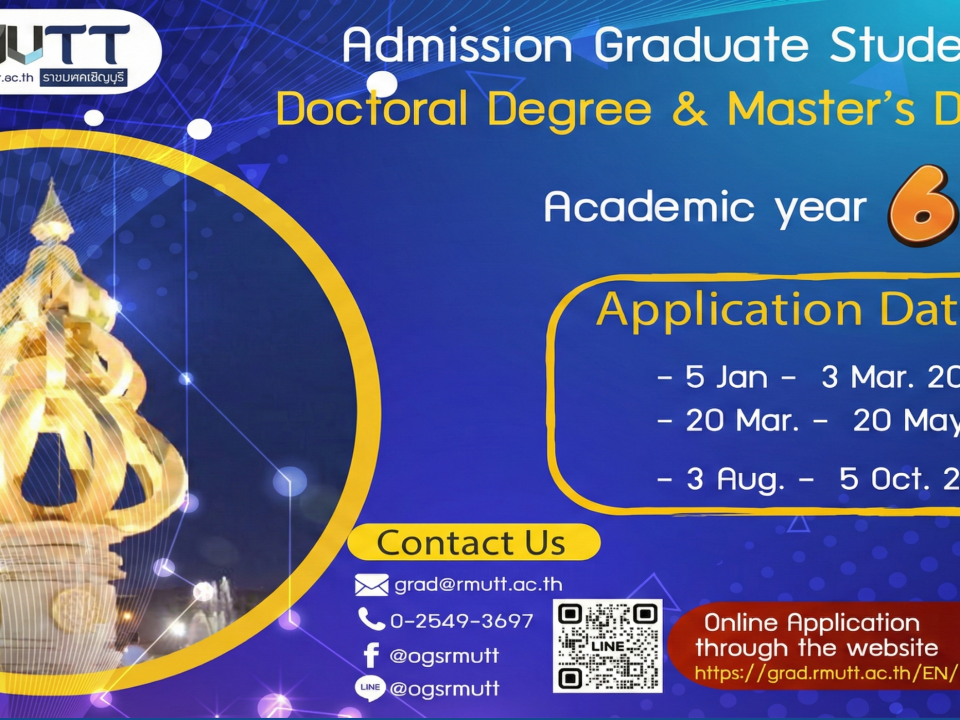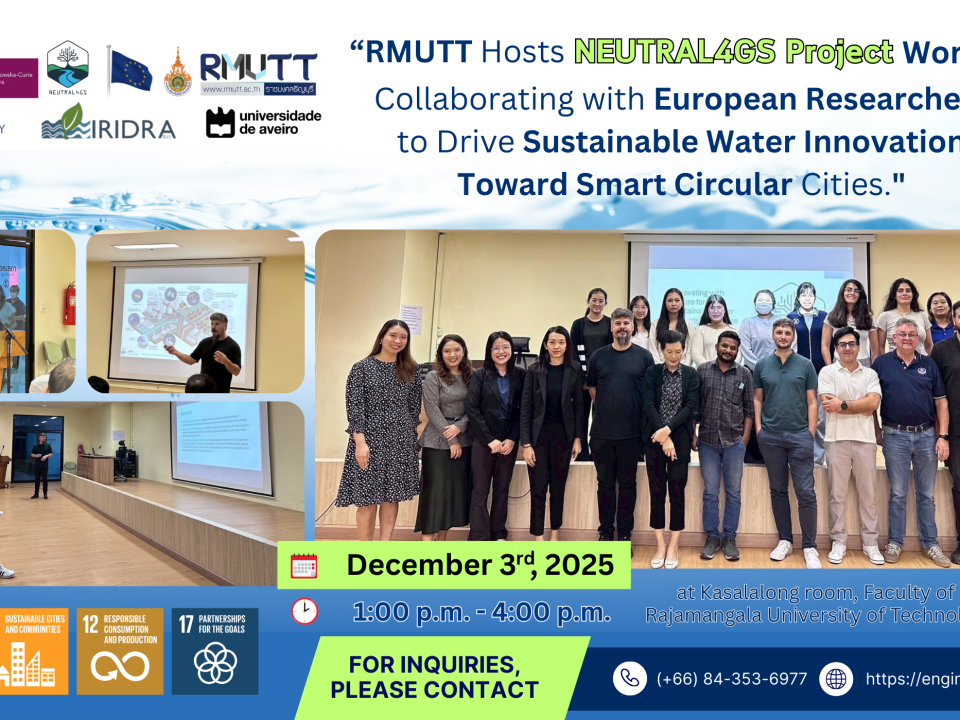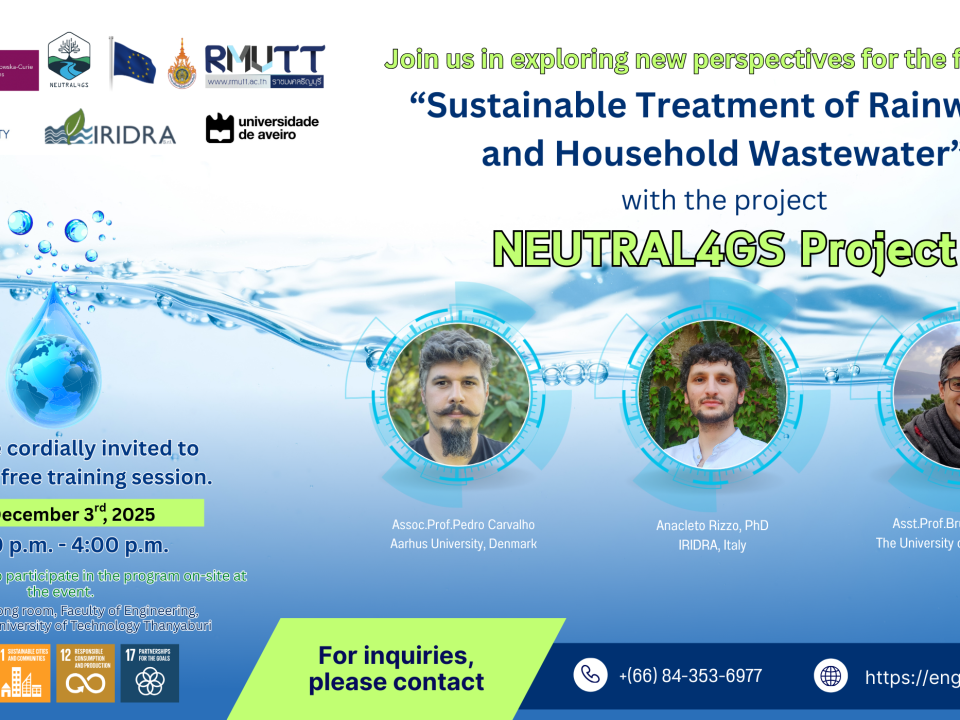
Top Researchers from RMUTT Receive 10 Awards at the International Warsaw Invention Show (IWIS 2017) in Poland
28/12/2017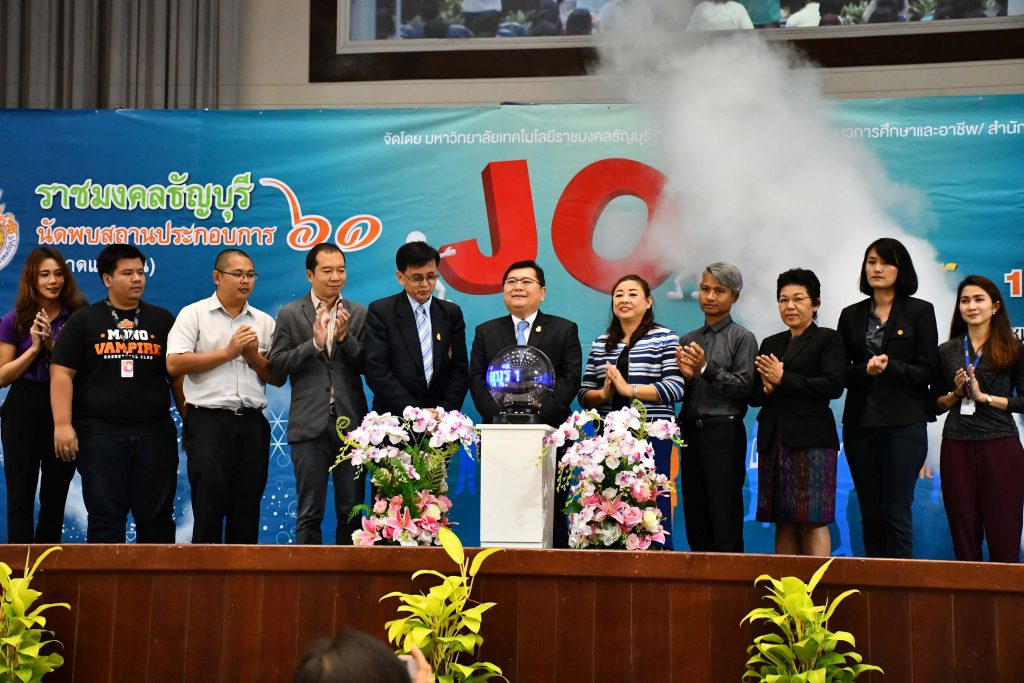
RMUTT Organizes 2018 Job Fair with Companies Recruiting a Total of 8,000 Graduates
14/02/2018Education: Sufficient Agricultural Area Built as a Learning Center for Patients Overcoming Drug Abuse
Students in the Bachelor of Crop Production Technology and Landscape at RMUTT’s Faculty of Agricultural Technology built a sufficient agricultural area as a learning center for patients at PMNIDAT institute on drug abuse in Thanyarak hospital, Pathum Thani province.
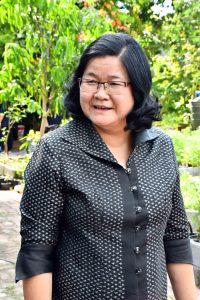 Asst. Prof. Dr. Rungsawan Wanasut, Dean of RMUTT’s Faculty of Agricultural Technology said that the program was a collaboration between the faculty and Thanyarak hospital, in order to redesign the hospital’s landscape by integrating King Rama IX’s philosophy of sufficient agriculture. Furthermore, students were able to train on-the-job and transfer knowledge to hospital staff and patients, which may be useful for their careers.
Asst. Prof. Dr. Rungsawan Wanasut, Dean of RMUTT’s Faculty of Agricultural Technology said that the program was a collaboration between the faculty and Thanyarak hospital, in order to redesign the hospital’s landscape by integrating King Rama IX’s philosophy of sufficient agriculture. Furthermore, students were able to train on-the-job and transfer knowledge to hospital staff and patients, which may be useful for their careers.
“The sufficient agricultural area will help improve patients’ quality of life, create career opportunities, and make patients livelier. They will learn how to plan, take care of, and monitor their plants. At the same time, students will be able apply what they learnt in class in real life situations and examine various examples that will aid them in selecting the right path for their future” said Asst. Prof. Dr. Rungsawan Wanasut, Dean of RMUTT’s Faculty of Agricultural Technology.
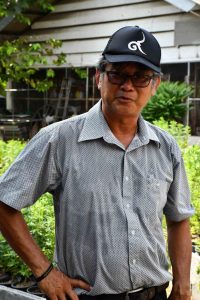 Moreover, Prof. Pisan Tansin from RMUTT’s Faculty of Agricultural Technology explained that this academic service is a collaboration between two functions, in which the faculty was responsible for fishery training, crop propagation, horticultural therapy for patients overcoming drug abuse, and redesigning almost one rai of area in Thanyarak hospital by integrating King Rama IX’s philosophy of sufficient agriculture. The areas were properly spaced to host a variety of activities or grow various crops. Students in the Bachelor of Crop Production Technology and Landscape are building vegetable, fruit, and flower gardens, and current completion is at 80% complete.
Moreover, Prof. Pisan Tansin from RMUTT’s Faculty of Agricultural Technology explained that this academic service is a collaboration between two functions, in which the faculty was responsible for fishery training, crop propagation, horticultural therapy for patients overcoming drug abuse, and redesigning almost one rai of area in Thanyarak hospital by integrating King Rama IX’s philosophy of sufficient agriculture. The areas were properly spaced to host a variety of activities or grow various crops. Students in the Bachelor of Crop Production Technology and Landscape are building vegetable, fruit, and flower gardens, and current completion is at 80% complete.
“Conducting field work will help students become more professional and increase their willingness to volunteer, which are important characteristics that the new generation should possess” said Prof. Pisan Tansin.
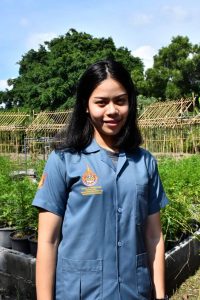 Ms. Nataree Suwapapkul, a student that participated in the program, said that she was able to apply what she learnt in class, such as materials related to landscaping, to the program. Under Prof. Pisan’s advice and supervision, she and her friends were able to help in the program and hopes that the program will continue to benefit Thanyarak hospital.
Ms. Nataree Suwapapkul, a student that participated in the program, said that she was able to apply what she learnt in class, such as materials related to landscaping, to the program. Under Prof. Pisan’s advice and supervision, she and her friends were able to help in the program and hopes that the program will continue to benefit Thanyarak hospital.
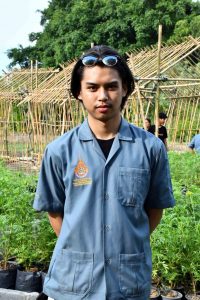 Mr. Silp Saithip said that what used to be an open space is now a sufficient agricultural area. He felt proud to be able to participate in this program by contributing his thoughts, helping with construction of the vegetable garden, which was decorated in the shape of a ‘wifi’, and exit area, which was decorated in the shape of a banana leaf to signify natural elements, and represent plants that were grown in the garden, such as the banana tree.
Mr. Silp Saithip said that what used to be an open space is now a sufficient agricultural area. He felt proud to be able to participate in this program by contributing his thoughts, helping with construction of the vegetable garden, which was decorated in the shape of a ‘wifi’, and exit area, which was decorated in the shape of a banana leaf to signify natural elements, and represent plants that were grown in the garden, such as the banana tree.
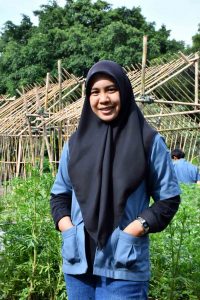 In addition, Ms. Palawee Langsan said that she used her personal time to help the community by aiding patients so they can live a better life and have favorable career prospects.
In addition, Ms. Palawee Langsan said that she used her personal time to help the community by aiding patients so they can live a better life and have favorable career prospects.
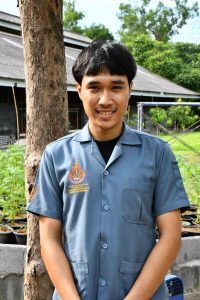 Mr. Chotiwut Deemai, an aspiring landscape designer, said that he prefers to learn by doing and not just study theories. He finds the natural aspects of trees fascinating and wants to create or design environments, and improve existing environments. Participating in this program played to his personal interests and was in line with his passion. He was able to learn on-the-job, which made him gain more experience.
Mr. Chotiwut Deemai, an aspiring landscape designer, said that he prefers to learn by doing and not just study theories. He finds the natural aspects of trees fascinating and wants to create or design environments, and improve existing environments. Participating in this program played to his personal interests and was in line with his passion. He was able to learn on-the-job, which made him gain more experience.
